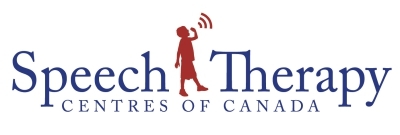So, your child has had their assessment at the Speech Therapy Centres of Canada. You’ve had a meeting with your Speech-Language Pathologist (s-lp), and she has explained to you what areas she will work on with your child, as well as many of the strategies she may use. And then she mentions that she will be training you to practice skills at home. In fact, she may ask you to attend some of the sessions and work alongside her.
Is this typical? Is it important?
The answer is yes.
Parents are an integral part of an effective speech therapy program, and in fact are key to their child’s success in changing and improving. Why?
- Parents are a child’s first language teacher. Your child learns to speak by modelling what you say and how you say it. So your child is very used to using you as a ‘teacher’. This makes speech therapy an easier adjustment for them.
- Parent talk is related to a child’s development. Your child is used to hearing you speak. Your voice, inflections, and topics of conversation are familiar to them. When you participate in the speech therapy process, you make the learning more seamless.
- Parents spend much more time with their child than the s-lp. Your child may only spend one or two hours per week with their therapist. But, they spend the rest of the time with you. Because of this you can practice the activities learned in speech therapy with your child everyday and help them to improve more quickly.
- Parents communicate with their child in real-life settings (e.g. supermarket, home , hockey rink) These are wonderful environments to promote communication development. Everything you do in your day-to-day life is an opportunity to employ the strategies learned in speech therapy.
Convinced? You should be. Research shows that when parents are trained to improve language and speech development their child’s language grows more quickly. The more quickly your child’s language grows, the more positive they will be and excited to participate in their speech therapy.
So, what can you do? How can you optimize your child’s speech therapy experience?
- Get involved. Ask questions. Participate when possible.
- Be interested, both in what the s-lo is doing and in how your child is feeling before, during, and after sessions.
- Set aside some time to work on speech therapy activities at home. Save some energy for practice time, and create excitement around the at-home program.
- Work with your s-lp to promote optimal communication in your child. Collaboration and teamwork are the true path to success when it comes to speech therapy.
Your next questions are probably what the partnership will involve and how much will you have to learn or do? Well, that depends on what you feel you can do, and on the specific circumstances. Your s-lp will be your ‘Communication Coach’ and will provide you with the following information, support, and tools:
- She will educate you about your child’s program, the intervention approach and the reasons why she has created the specific program.
- She will instruct you on some techniques to use at home.
- She will invite you to watch at least one session and will model the best strategies for promoting communication For example, she may say, “ …this is what we notice when he looks at you, so this may be a good time to say the word…….”
- She will observe you communicating with your child and will offer suggestions and tips for improving communication
The STCC believes in a whole family approach to Speech and Language Therapy. We truly believe that for a child to find their voice, we must build a relationship with them and with you, the parent.
For more information on our paediatric speech and language therapy programs, feel free to call us at 905-886-5941 or email our intake coordinator.
